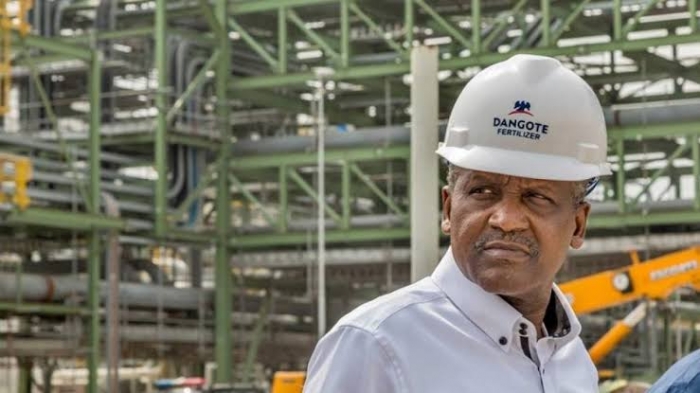The Depot and Petroleum Products Marketers Association of Nigeria (DAPPMAN) says no cabal in the midstream and downstream sector, just individuals with vested interests.
On May 1, Aliko Dangote, president of the Dangote Group, said he was still fightingcabals for the survival of his $20 billion refinery — subsequently describing “cabals” as some major oil marketers and traders.
Speaking in an interview with TVC on Friday, Olufemi Adewole, executive secretary of DAPPMAN, described the use of “cabals” by Dangote as being “negative” and “subversive”.
“There is no cabal in the midstream and downstream operations as far as I am concerned, because, going by the English definition of the word cabal, it’s a negative, subversive thing. There is no cabal, but I can tell you that we have vested interests,” he said.
“My principals have vested interests in the sector. So if they have invested over these years, billions of naira, and they have bridged the gap.
“Even before Dangote, they were there when nobody was there to bridge the gap and ensure Nigerians got fuel. Definitely, they should have commensurate returns on their investment.”
‘DANGOTE REFINERY CAN MANIPULATE PRICES DUE TO ITS CAPACITY’
Speaking further, Adewole said Dangote Petroleum Refinery’s capacity gives it an edge over all other refineries in the country, potentially allowing it to dictate pricing.
He said monopoly is a danger to DAPPMAN, adding that “we have been talking and deliberating about it”.
“Right now, we have a refinery, a 650,000 barrel capacity refinery. This price, volume and capacity alone give the refinery the edge over all others. It can manipulate prices. It can dictate prices,” Adewole said.
“It can get what it wants. So it’s a clear and present danger for us, and we would rather not have it that way.
“But the beautiful thing is that we have the regulators, who have been doing fantastically well since they came on board.”
He said regulators are actively monitoring to ensure no organisation violates the provisions of the Petroleum Industry Act (PIA).
The executive secretary said the act promotes a free market, enabling multiple players to participate in the system, while measures are in place to prevent monopolistic practices.
“You will recall that Dangote recently took the Nigerian Midstream and Downstream Petroleum Regulatory Authority (NMDPRA) and a few other marketers to court,” Adewole said.
“This tells you their (Dangote Refinery) mindset, and what they were challenging is actually the authority of the regulator, which is enshrined in the PIA, to release import licenses for marketers to import fuel. So it gives you a picture into their mindset.”
He said “the fear of monopoly is real,” and marketers are working with other stakeholders “to ensure this is not realised”.
“We are working with the regulators, encouraging them to do their work so that this is curtailed,” the executive secretary said.
‘DANGOTE REFINERY CAN NOT MEET ALL LOCAL SUPPLY NEEDS’
Quoting Farouk Ahmed, NMDPRA’s chief executive officer (CEO), Adewole said Dangote refinery is not meeting up to the “reduced local consumption volume”.
“So, for now, Dangote refinery cannot meet up. It is we, the private depot owners, that have been bridging the gap and meeting the needs of Nigerians,” he said.
The executive secretary added that stopping the importation of petrol at this stage would be “chaotic” and “dangerous”.
Adewole said a phased strategy would be more practical when multiple domestic refineries become operational.
The Cable

